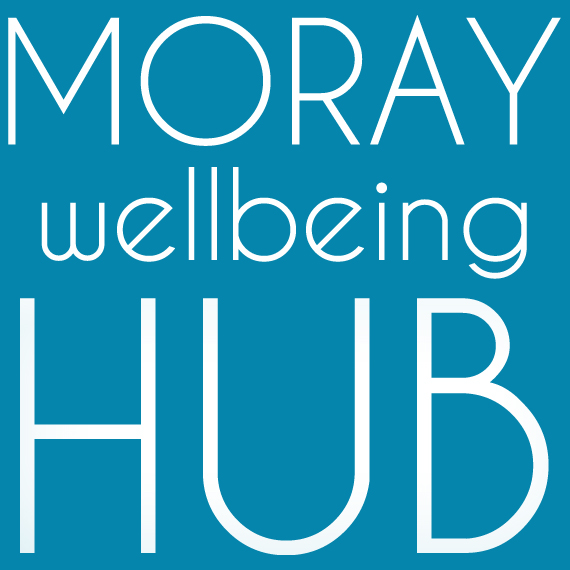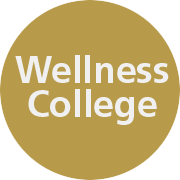I was delighted to be invited to travel to this event as a representative and Champion of the Moray Wellbeing Hub, in our role as community connectors toward improving health and social care in Moray, and challenging the stigma that prevents wellbeing for so many people.
I was joined by Kirsteen Pyett from the Social Work Mental Health Team in Moray, someone who I’ve worked with closely in the past through the Making Recovery Real in Moray initiative and is equally passionate about the subject.
Those attending came from a good geographic spread and many were heads of services or senior managers from both statutory (NHS and council) as well as large third sector (SAMH, Mental Health Foundation). There was also representation from the Scottish Government and bodies such as the Equality and Human Rights Commission, Mental Welfare Commission and ALLIANCE.
These are the decision makers and leaders that See Me wanted to hear from and enthuse with a format of key note speakers and table discussions.
Callum Irving, Director at See Me, started the event by setting the scene with some facts.
- 2 in 3 of us will experience a mental health problem in our lifetime – this is the figure that See Me are using more and more.
- Nearly 3/5ths of GPs plan to leave or reduce their hours – This shows a workforce issue relating to the strain on mental wellbeing for practitioners in health.
- He spoke about the issue of ‘diagnostic over shadowing’ – this is where the mental health problems are looked at in favour of any physical ones, missing key physical illnesses that are easily treatable.
However, in Scotland, there are emerging approaches that can support the challenging of stigma such as integration of mental and physical in health and social care, which is why See Me arranged this seminar.
Callum pointed out that mental health and wellbeing needs to be taken in to account no matter what our interaction with health and social care.
Examples:
- Lanarkshire – stigma free September campaign. This work included interviews with GPs in training.
- Moray – Our 10 year strategy “Good Mental Health For All” as a great example.
The next speaker was Fiona McQueen, Scotland’s Chief Nursing Officer. She had some passionate views on the subject and said, “If we, as nurses, can’t be inclusive in health and social care then how can we expect this of the rest of the country. We need to be role models.” She also talked about human rights approach, “Mental and physical health is vital to our rights as a human being”.
Fiona then went on to discuss the challenges, such as having deep societal issues rooted in education and intuitionalism that need addressed. She asked folk to pause and reflect on some statistics, such as the fact that those with mental health issues are likely to live 15-20 years less, and said, “…it’s spectacular that we are not outraged by this figure.”
Another example she gave was, “Waiting more than four hours at A&E when you are at your most distressed….I know it’s not right that our current service is not working for people with mental health problems.” She went further and pointed out, “Not only are we not helping people, we are making it worse.”
Fiona’s talk was far from a negative focus, she looks forward to a future of parity as individuals…“We will be more able to talk about deep distress in our lives – like we trade stories about a broken leg.” From this she shared some of the Nursing 2030 vision which includes a focus on supporting nurses in their wellbeing. She shared that nurses are twice as likely to suffer depression than the general population – “the need to create an opportunity for staff to flourish is vital”.
She also shared her hope that if they can affect change in nursing it can massively affect change more widely in health and social care, as they make up much of the workforce. Further to this she was clear, “I’d like to do more recruitment of those with experience of mental health problems. I see this as a strength.”
This is exciting to hear as at the MWH we also believe in the power of using life experiences to better connect in any support role and inspire hope for change and recovey. As Fiona says the key is, “We need confidence and belief that we can do this.” She ended by talking a bit about nurses working with communities in a different way, using rights based approaches and whole person care.
Dr Gregor Smith, Deputy Chief Medical Officer, was the next guest speaker and his presentation title was – ‘Realistic Medicine: How mental health inclusion can help to realise realistic medicine”. He started by reminding us that as people get older they gather more conditions including in mental health.
I was immediately wondering if this was to be a very research and medical based presentation, as Gregor popped up a slide or two with detailed graphs, but he then took a welcome u-turn in approach and spoke about his mum as an example of how mental health problems have complexity interlinked with physical illness and inequality. She had physical pain, but he knew she had not discussed her anxiety with her GP, and he used his personal experiences around this to frame his topic.
From this he went on to say that stigma affects patients in preventing them disclosing issues, this then goes on to affect how their illnesses can be managed by GPs and ultimately the people themselves.
He used an interesting equation to explain this:
T= f (Dm) This is how GPs used to work, treatment is the function of a medical diagnosis.
He spoke about assumptions from GPs, and the need for choice and preference for patients.
This has led him to a new formula – T= f(Dm Dp). Treatment is the function of a medical diagnosis and diagnosis of preference – i.e. people need to know about their conditions, what the treatment available is and then make informed choice.
This led on to the topic of health literacy, which is all about people being able to engage and understand their medical needs and treatments. “People need to feel like part of the conversation”.
This made me reflect on what we can do in Moray to help empower people to make the best use of their medical services. Areas such as self-advocacy, self-awareness, signposting are all core to our work, but perhaps we need to explore ideas like buddying with a peer or supporter to enable people to go along to new community activities. This is something I intend to explore more with our colleagues in Health and Social Care.
Gregor went on to say that “our next challenge is realistic health” and he questioned if the word ‘realistic’ was even the correct term.
“Healthcare provides 20% of health outcomes” and “We need to recognise opportunities for experiences in life and how these affect future outcomes for people”, were key points on this from him. Again, it felt that although his was a medical background the focus was very much on harnessing the power of the individual to create change in health.
Gemma Walsh, See Me Volunteer, was next up and she spoke about her personal experiences of using health and social care in her journey with mental health. She shared her story of pain of depression and suicidal thought, and the hope that can be given by a friend who commits to believing in you.
She shared her experiences of a visit to the GP where, unfortunately, they extinguished this hope that her friend had given her, through their judgment and dismissal of her pain rather than working with her to truly hear her challenges, “Well you’ve got clean clothes on, you don’t look to bad to me” they had said. After this blow she shared that she could not have sought help again without the support of friends and family.
Another example she shared was around the experience of a sense of embarrassment the time an ambulance arrived in a time of distress and staff made her return with them. She felt she would be best at home and was threatened with the police being called if she did not go with them. This is a story I have heard many times from community members and shows a need for us to work with ambulance staff to support their role around risk and policy, as well as awareness of stigma and recovery.
She spoke about the excellent care she had received since then when her GP and CPN (Community Psychiatric Nurse) truly listening and working with her. She says it is so simple how these people helped, saying, “All our words and actions have impact. Compassion, caring for each other and challenging stigma – this is the pace we can start to create change.”
Finally, Iona Colvin, Chief Social Care Adviser Scottish Government, gave her address. She spoke about the relevance of today’s discussion with the wider integration agenda -“It’s about organising services around the needs of people.” She explained the Integrated Joint Boards are important because they should raise expectations and aspirations of health and social care – “It’s about people, and should be seamless from the point of view of those who are using it.” She spoke about using peer researchers in her previous role in North Ayrshire to find out what was the big health concerns of the public. Interestingly, the results of this showed that regardless of age the result was the same – mental health and wellbeing was their top concern.
She spoke next about commissioning and that this process needs to be done differently. Development of locality based services, bringing services to the areas that need them with development that includes those local to it, is about people being brought out of their silos or areas of focus to work together. What is it our communities require? is a key question she feels we should always ask. She gave the example of Café Solas as a great example of running a service for local people whilst at the same time changing things for the people involved themselves.
She also mentioned the need to improve areas such as A&E and the government’s interest in this, and the Community Planning Partnership being an opportunity for seeing real connections that are the responsibility of other partners like police, housing etc.
After the main presentation, there were table discussions facilitated on key topics. This included my own table which looked at prevention of the stigma surrounding mental health in health and social care. The note from these will form a See Me report that they will share in the coming weeks.
Beyond the discussion, a panel of key individuals was asked to form and below are some shore notes on the discussed topics:
Colin McKay, Chief Executive, Mental Welfare Commission
- Reminded everyone that in fact mental health treatment is unequal to physical health, despite our desire for parity we need to recognise the difference as people can be given treatment when they have not given permission for it and the ability to control life is affected. Human rights is, therefore, a key part of this.
- Ask who is most marginalised even within mental health issues – stigma within the stigmatised groups – such as those with a diagnosis of Borderline Personality Disorder.
Dr Linda Findlay, Associate Medical Director and Consultant Psychiatrist (South Lanarkshire Health and Social Care Partnership),
- Shared a personal story of her experience of stigma affecting those in health and social care, when her GP had been unwell and afterwards asked her if she still wanted to be treated by him. It was emotive and excellent to hear life experiences as a leadership tool toward challenging stigma.
Stephen McLellan, Chief Executive, Recovery Across Mental Health
- He wants third sector to be seen as equal partners – Delivery of different roles means it can be all too easy to get into the blame game.
Iona Colvin, Chief Social Work Adviser
- Agreed with Stephen, “We all need to think of ourselves as the same team.” Cultural shift.
- Spoke about sharing experience of life as a leadership and connection tool with people.
Other people brought up discussions around:
- Challenge of education and opportunity for young people to build health knowledge.
- Mental health workforce needs changed – individual, cultural and organisational level. A flourishing workforce with systems and policies and making support available to others
- Potential funding streams in this – commercialism of Human Resources as a market. People looking for health and social care partners to deliver support to workforces in their organisations. Could this fund other work? Money lost to mental illness in Scotland – cost equations. This could be used as a promotional way to connect with the wider community.
Final reflection – it was a very full day and I was inspired and enthused to meet so many high-level decision makers in health and social care, as I felt that we were very much on the same page despite our different roles. Whether this event created the change See Me hoped for I was unsure. The attendance does show the enthusiasm and commitment to challenging stigma that is present in leadership in Scotland, but it is those not in the room or motivated around this issue, those that we need to inspire to create change, that makes it difficult to predict the impact of this event across Scotland as a whole. What can definitely be said is that it is a start and that connecting those who share a vision always gives them strength to continue to lead change.






